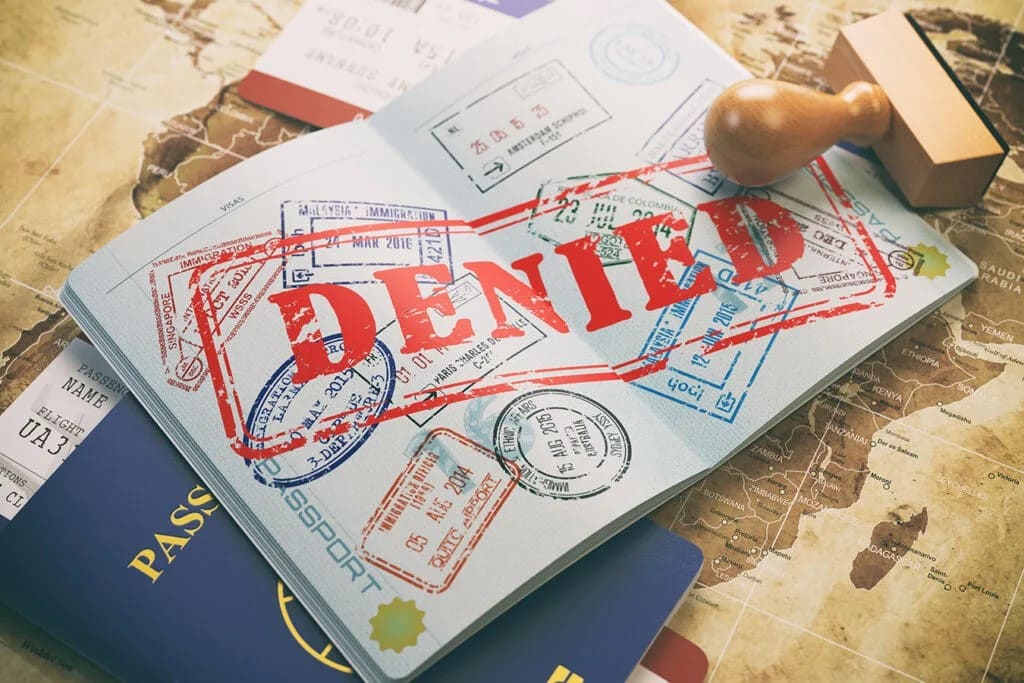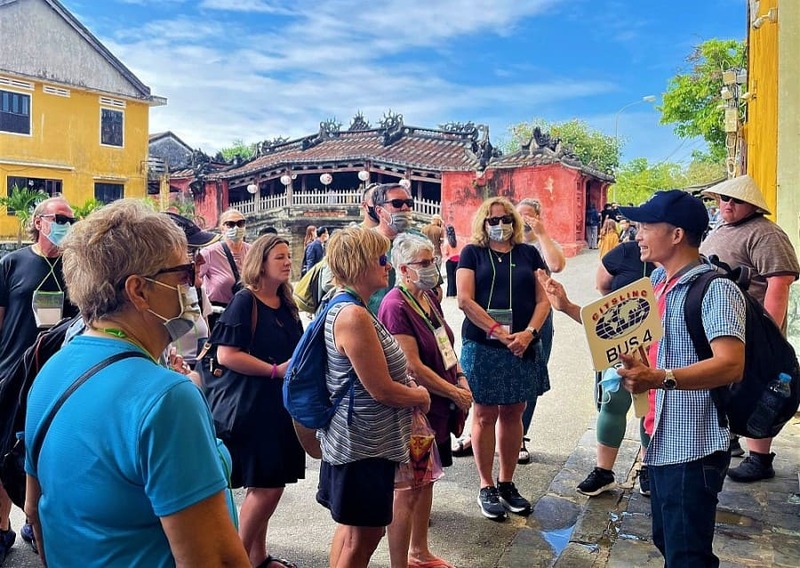Vietnam Visa Rejection Reasons and How to Fix Them
Planning a trip to Vietnam? Avoid a rejected visa by understanding common pitfalls and how to fix them. This guide will help you avoid Vietnam visa rejection reasons while showing you why visa applications get rejected in Vietnam.
Common Visa Rejection Reasons
First, let’s break down the common reasons for visa rejections:
Incomplete or invalid travel documents
Travelers must ensure that their passport:
- Remains valid for at least 06 months before entry.
- Contains two blank pages for entry stamps.
- The visa application will be denied if the passport does not meet these criteria.
Make sure to verify your passport before applying to ensure it meets all requirements.
Inaccurate or inconsistent information in the application
Submitting incorrect or inconsistent information during the visa application process often leads to an automatic denial. Common reasons for rejection include mismatched personal information such as name, passport number, birthdate, or travel itinerary errors (e.g., incorrect arrival and departure dates).
Tip: Ensure that all details in your application exactly match the information in your official documents before submission.

Failure to submit required supporting documents
One of the main reasons for Vietnam visa denial is the lack of required supporting documents. Depending on the visa type, you may need to submit specific documents such as:
- Passport-sized photos
- Flight bookings
- Hotel reservations
- Proof of sufficient funds
- Invitation letters
Tip: Verify the required documents for your visa type and gather them in advance to avoid delays.
Lack of a detailed travel itinerary
Vietnam’s immigration authorities require a detailed travel itinerary specifying your destinations, accommodations, and transportation methods. Incomplete or unclear travel plans may raise doubts about your reasons for visiting.
Tip: Provide a well-documented itinerary, including hotel bookings, transportation tickets, and activity plans to support your application.
Criminal history
A criminal record can be a major obstacle when applying for a Vietnam visa. Particularly serious crimes, such as drug-related offenses, often result in visa rejection due to strict security regulations in Vietnam. All past criminal convictions must be disclosed during the visa application process.
Tip: Full disclosure of your criminal history is required. Failure to reveal this information may lead to visa denial and potential blacklisting for future applications. Seek guidance from the Vietnamese embassy or consulate if necessary.
Applying for the wrong type of visa:
Vietnam provides multiple visa types, including:
- Tourist visas
- Business visas
- Student visas, and others
If you apply for the wrong type of visa (e.g., applying for a tourist visa when you intend to work or study), your application will be rejected.
Tip: Ensure that you apply for the correct visa type based on your travel purpose before beginning the application process.
Insufficient funds
Vietnam requires evidence of sufficient funds to cover your stay in the country. If you fail to show adequate financial proof, such as bank statements or employment documentation, your visa application will likely be denied.
Tip: Provide detailed financial records to demonstrate that your trip expenses are within your budget and that you are financially stable during your visit.
Lack of confirmed accommodation
Immigration officers require proof of accommodation to verify your stable living situation during your visit. Failure to confirm your accommodation arrangements may result in visa denial.
Tip: Confirm your accommodation details before applying and provide proper documentation as proof.

Health issues
Travelers from regions with active diseases must comply with Vietnam’s health regulations. This may include presenting health certificates, such as yellow fever vaccination records, depending on your origin.
Tip: Review the health requirements for your nationality and ensure that you fulfill all necessary health standards before applying.
Suspicious Activities or Political Issues
Visas will be denied if Vietnamese authorities detect any suspicious or political activities. Unauthorized work, political activism, or participation in movements violating Vietnam’s regulations can result in visa rejection.
Tip: Always ensure that your actions comply with Vietnam’s laws and regulations to avoid visa rejection.
What To Do If Your Vietnam Visa Is Denied
If your Vietnam visa is rejected, it can be disappointing but there are steps you can take to resolve the issue:
Request an explanation
You have the right to request clarification from immigration officers when they deny your visa application. The authorities must explain the exact reason for rejection so you can fix the problem before submitting another application.
Contact the Vietnamese embassy or consulate
If you believe your visa rejection was unjust or if you need clarification, you can contact the Vietnamese embassy or consulate in your home country. They may be able to guide you on the next steps, including the possibility of an appeal or the requirements for submitting a new application.
Contact a Third-Party Service for Quick Assistance
If you need fast and efficient support, consider reaching out to Seniworld for assistance with your visa application. They can help you review your visa documents, ensure all requirements are met, and guide you through the process.
By working with experienced professionals, you can avoid common mistakes and expedite the resolution of any issues related to your visa application.
Frequently Asked Questions
Can I appeal a Vietnam visa rejection?
While Vietnam does not have a formal appeal process for visa denials, you can contact the Vietnamese embassy or consulate to inquire about the reasons for the rejection. They may be able to provide guidance or allow you to reapply with corrected documents or information.
How long does it take to get a Vietnam visa?
The processing time for a Vietnam visa typically takes 3 to 5 business days, depending on the type of visa you are applying for. However, it’s advisable to apply at least two weeks in advance to ensure there’s enough time to address any issues that may arise.
Can I Get a Refund if My Visa Application is Rejected?
Unfortunately, visa application fees are typically non-refundable, even if your visa application is rejected. The fees are for processing your application, and the decision made by the immigration authorities is final. Make sure your application is complete and accurate to minimize the chances of rejection.
If I Was Rejected Once, Will It Affect My Next Application?
A visa rejection may not automatically affect your next application, but it can if the reasons for rejection are not addressed. If you failed to submit the required documents or provided inaccurate information, ensure everything is accurate and complete in your next application.
Conclusion
A Vietnam visa rejection can be discouraging. Understanding common causes and taking preventive steps, you can boost your chances of approval. Ensure your documents are complete, accurate and meet Vietnam’s requirements. If rejected, please address the issues and reapply with confidence. For expert assistance, contact Seniworld to guide you apply your visa. By following the guidelines carefully, you can be closer to exploring Vietnam.
